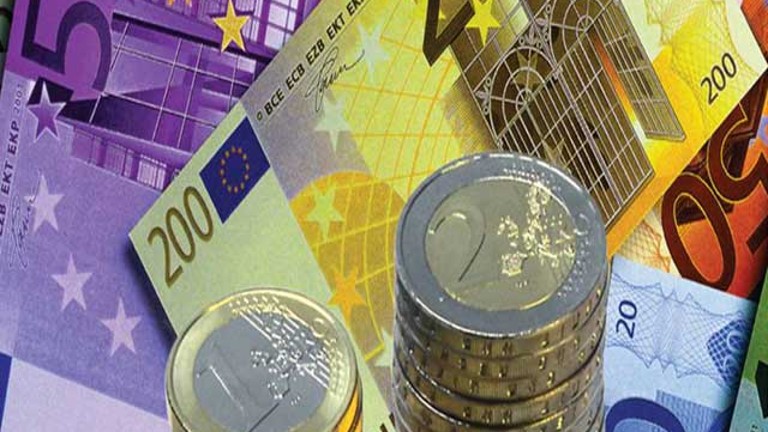Dollar slips despite strong US jobs report

Euro currency
NEW YORK: The dollar fell against the euro on Friday despite a strong US April jobs report that otherwise sent stock markets and oil prices soaring.
Analysts said that an increased interest in risk assets in Europe were to blame in part for the sharp reversal of the greenback's gains that followed the release of the employment sector data.
At 2100 GMT the euro was at $1.3116, up from $1.3063. The single currency largely traded above the $1.3110 level throughout the day, except for a short-lived spike downward to $1.3062 immediately following the US Department of Labor jobs data release for April.
The department reported the US economy added 165,000 jobs in April, and revised sharply upwards its numbers for the previous two months, helping to send the unemployment rate down a tenth point to 7.5 percent.
The data offered a significantly brighter picture of the jobs situation than that for March, which would ostensibly have turned into a sustained dollar rally, analysts said.
"But a material euro recovery suggests traders are not quite ready to push it to fresh lows despite signs of pickup in the US economy," said David Rodriguez of DailyFX.
"Substantial moves in global government bond markets tell most of the euro's story: yield-hungry investors pushed the Greek 10-year Government bond yield below 10 percent for the first time in almost three years," he said.
"We can hardly claim that economic and fiscal crises are solved in the euro area, but buoyant global financial markets are encouraging risk-taking -- benefiting the euro greatly against the safe-haven US dollar."
The dollar did manage a gain on the yen, pushing back to 99.00 yen, from 97.93 Thursday, while the euro rose to 129.80 yen from 127.93.
The British pound also gained on the dollar, to $1.5572 from $1.5531, while the dollar was barely higher on the Swiss franc, at 0.9348 francs.
What the stars mean:
★ Poor ★ ★ Promising ★★★ Good ★★★★ Very good ★★★★★ Exceptional
Latest News
More News
- Cashless payments hit 28 times GDP in 2025 (February 04, 2026 | 18:09)
- SSIAM and DBJ launch Japan Vietnam Capital Fund (February 04, 2026 | 15:57)
- Banks target stronger profits, credit growth in 2026 (February 04, 2026 | 15:43)
- Vietnam on path to investment-grade rating (February 03, 2026 | 13:07)
- Consumer finance sector posts sharp profit growth (February 03, 2026 | 13:05)
- Insurance market building the next chapter of protection (February 02, 2026 | 11:16)
- NAB Innovation Centre underscores Vietnam’s appeal for tech investment (January 30, 2026 | 11:16)
- Vietnam strengthens public debt management with World Bank and IMF (January 30, 2026 | 11:00)
- Corporate bond market poised for stronger growth cycle (January 28, 2026 | 17:13)
- Vietnam's IPO market on recovery trajectory (January 28, 2026 | 17:04)
















 Mobile Version
Mobile Version